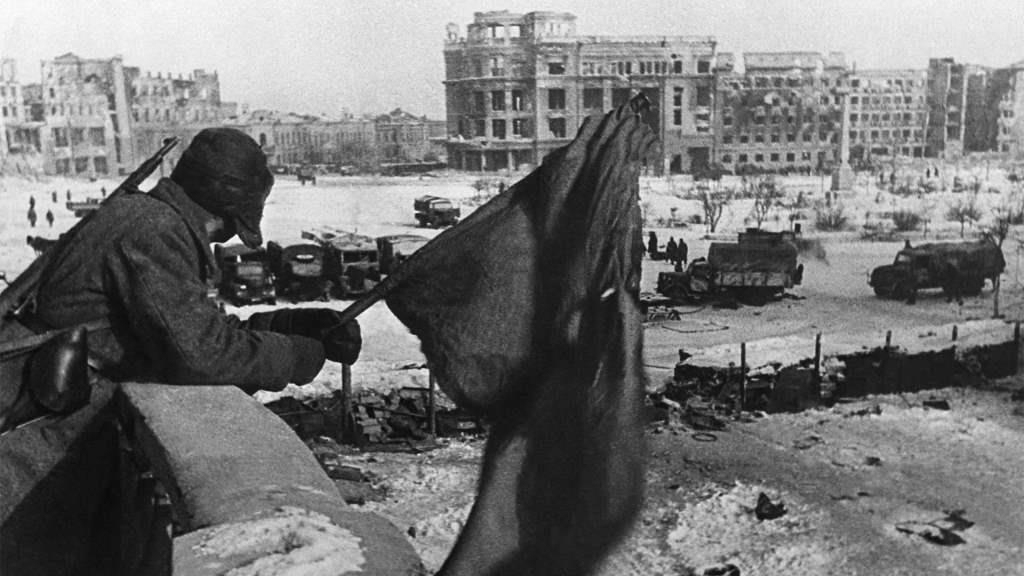The main reasons:
- Wehrmacht had huge amount of casualties (more than 800 000 of soldiers) and weapons and military equipment (2700 of military airplanes, 4300 of tanks, 15000 of weaponry and mortars)
- The USSR got the strategic defense initiative after getting victory at Stalingrad battle
- Turkey and Japan declined the offering to get into the war against the USSR after crushing defeat of one of the strongest armies of Wehrmacht
- The military allies of Third Reich stopped to believe in invincibility of German weapons trying to find a new way of leaving the war from the Germany’s side
- The Red Forces gained valuable experience in planning and realization of big and successful offensive operations
- Southern grouping of Germans was threatened with encircling maneuver and Hitler’s plan to take over British oil fields was failed
- The most important watercourse Volga to connect a front line with Soviet back areas was not cut off. Military shipping was still delivering by river to Red army
- The morale of the troops and all the German citizens was damaged
- The morale of Soviet troops grew up and people started to believe in the Victory
Combat casualties
The casualties of Germany and its allies after Stalingrad battle were catastrophic. According to different data they had lost from 800 000 to 1 200 000 soldiers. About 100 000 of them were captured. Of course the USSR also had huge casualties, but we should remember that Nazi Germany had from 90 to 111 millions of citizens while the USSR had about 193 millions in 1941. The German industry producing at its maximum output could not to cover up huge losses of airplanes, heavy equipment, weaponry, and mortars that were lost in Stalingrad battle. The Third Reich estimated to be 25% of all lost forces operating on the Soviet-German front.
The red flag of the USSR in the liberated Stalingrad
Allies
One of the most important reasons why Hitler wanted to gain Stalingrad at all costs was promise of Turkey to enter the war and become German’s ally if Germany would win the Stalingrad battle. Japan also had enough resources to declare war on Soviets by open attack on Far East seeing the Soviet weakness. But in the end the candidates of The Third Reich’s allies decided not to put their oar in it. The countries of Axis Powers had already started to think about ways of leaving the union.
Valuable experience of Red Army
The Generals of the USSR were educating during the war while Hitler’s army had the huge experience of planning and realizing of big offensive operations during the European campaign in 1939-1941. So now the USSR supreme command also had positive experience of strategic planning. This experience would play the main role in battle of Kursk, breach of the Leningrad siege, liberation of Belarus, Berlin offensive operation, etc.
Battle of the Caucasus
The withdrawal of the German army out of the Caucasus and Kuban after comprehensive defeat at battle of Stalingrad was rather tenable because of the threat of being circled. As a result the campaign of oil field capture was a total failure in 1942. Hitler’s army would not be able to get enough fuel for its equipment having desperate shortage of gas and patrol to the end of the war.
Conclusion
Germany paid a lot for Stalingrad. General of the land force of German Army Kurt Zeitzler told about it: «I told to Hitler in November that losing of quarter of all the national army in Stalingrad means to fail all the basis of Eastern front. The march of events showed that I was right. The Battle of Stalingrad became a turning point in World War II. " If you are interested in Stalingrad of nowadays, you can read this article. Also if you would like to buy real artifacts from Stalingrad, then you can do it in our WW2 Militaria shop.

